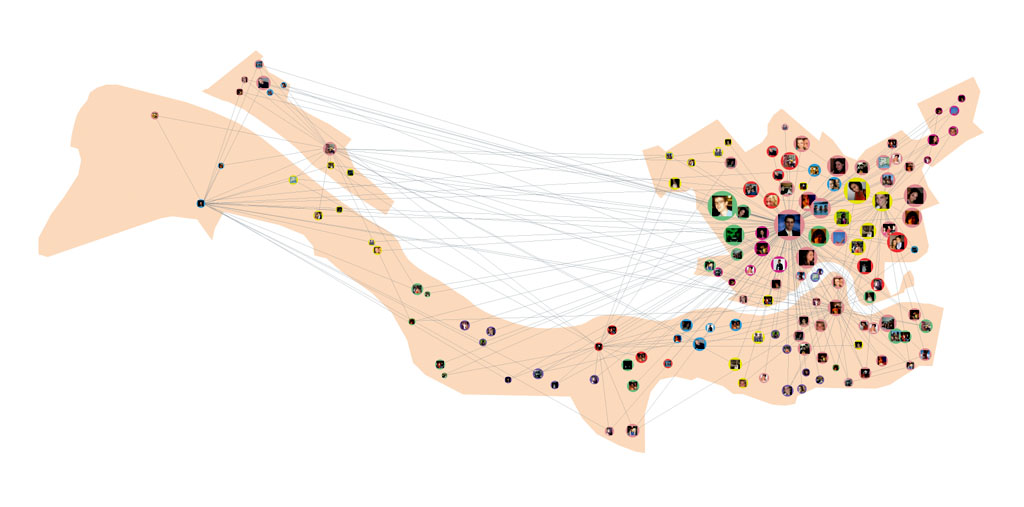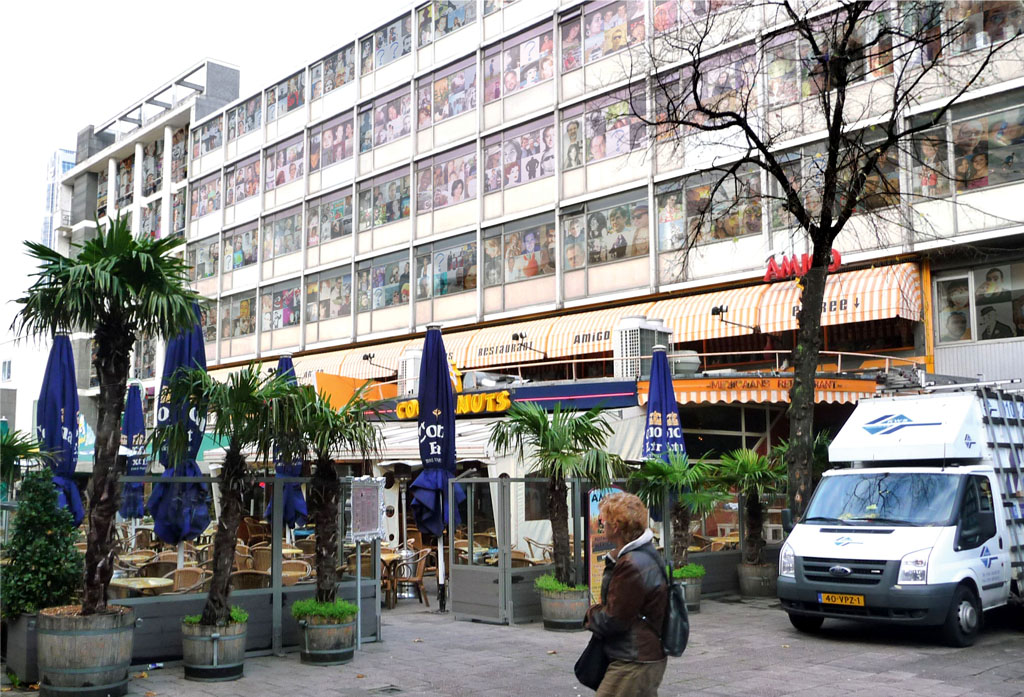13-11-09 // FACEBOOK CITY

Rotterdam as a Facebook City
Just like the original Facebook itself, Facebook City will be a social networking service and website. But in contrast to Facebook, Facebook City will focus on potential architectural and urban projects in general, and on architectural restoration, preservation, renovation, redevelopment, and adaptive reuse projects of existing, but unoccupied urban structures in particular. Instead of personal profiles, users may create business-oriented profiles for professional networking. Thus, Facebook City aims to help its users finding potential projects to develop, potential space to work in, but also business partners to initiate projects with, in a very direct and transparent way. As real estate developers and politicians usually do not read architecture magazines, Facebook City will deliver a platform to connect them in a straightforward and democratic way to architects, urban planners, and landscape designers. Thus, connections on Facebook City can be used in a number of ways: they can be used to find projects, people, and business opportunities recommended by someone in one’s network of contacts. Alternatively, owners of unoccupied buildings can list these and search for potential users or developers. Furthermore, architects, urban planners, and landscape designers can review the profiles of developers or politicians and get introduced to them. But users may also post their own projects and view projects of others. Additionally, users can follow different companies and get notifications about new connections made and offers available. Last but not least, users can save or bookmark projects which they would like to apply for.
A business-oriented social networking site such as Facebook City could help bringing different disciplines closer together and establish more direct interactions between politics, planning, and design, as well as with the real estate industry, in order to develop more effective ways of responding to urban challenges. But Facebook City aims not only to improve the connectivity between the disciplines that are in charge and in power of city development, but also to achieve first of all a transparency among participants and their interests, projects, and ideas. There are, of course, plenty of websites already in existence that communicate on topics concerning city development, but most of them are too focused on one particular interest group, which originates either in the field of politics, in design, or in the real estate industry, and includes pages for ‘antikraak’ organizations or even ‘antikraak’ forums as well. But none of those sites are neutral enough too bring the different disciplines together. On the other hand, established social networking sites such as Facebook itself or LinkedIn are by far too neutral to work as city development platforms. Especially in times when the need for new buildings or entire city quarters is decreasing or even ceasing to exist altogether – at least in the Western world – due to the demographic changes and financially difficult times, a platform such as Facebook City could function as a new city development tool that is able to adapt to constantly changing urban conditions in a rapidly changing society. In that sense Facebook City literally wants to be both: a platform for politicians, city authorities, cultural organisations, and researchers, searching for more effective, appropriate planning principles and methods, and a platform in the practical field, initiating and managing innovation projects.

Facade of a potential building of Rotterdam’s Facebook City
Title: Facebook City
Project: Study on the potential of online social networking services for the built environment
Date: November 2009
Type: Self-initiated study
Location: Rotterdam
Programme: Research on adaptive reuse of old architectural structures
Status: On-going
Client: Self-initiated
Team: Bernd Upmeyer, Alice Grégoire